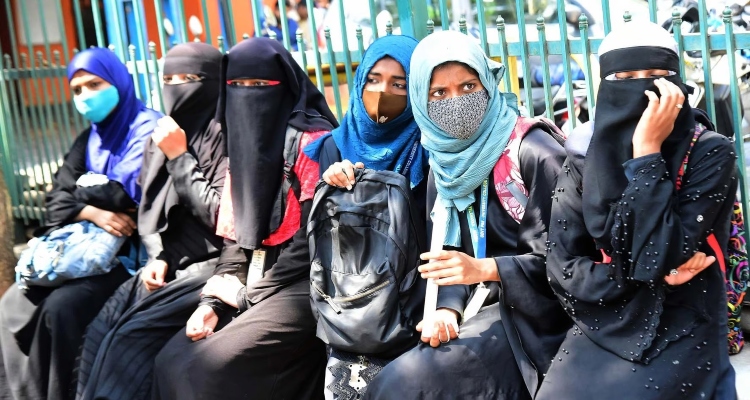
The Supreme Court on Tuesday said it has ordered the listing of a plea challenging the Bombay High Court’s verdict, which upheld a Mumbai college’s decision to impose a ban on wearing ‘hijab,’ ‘burqa,’ and ‘naqab’ inside the campus.
The Bombay High Court had, on June 26, refused to interfere with the decision of the Chembur Trombay Education Society’s N G Acharya and D K Marathe College, stating that such rules do not violate students’ fundamental rights. The court had reasoned that a dress code is meant to maintain discipline, which is part of the college’s fundamental right to “establish and administer an educational institution.”
In response to a submission seeking urgent listing of the appeal, a bench comprising Chief Justice D Y Chandrachud and Justices JB Pardiwala and Manoj Misra noted that a bench had already been assigned to the matter and that it would be listed soon.
Lawyer Abiha Zaidi, representing the petitioners, including Zainab Abdul Qayyum, requested an urgent hearing, citing that unit tests at the college were likely to commence on Wednesday.
The Supreme Court has yet to conclusively decide on the legality of such directives issued by educational institutions. On October 13, 2022, a two-judge bench of the top court delivered opposing verdicts in the hijab controversy from Karnataka, where the then BJP-led state government had imposed a ban on the Islamic head covering in schools. Justice Hemant Gupta, since retired, had dismissed the appeals challenging the Karnataka High Court’s decision to uphold the ban, while Justice Sudhanshu Dhulia had ruled that there should be no restriction on wearing the hijab in schools and colleges.
The current controversy arises from the decision of a Mumbai college. The Bombay High Court rejected the plea against the ban, stating that the dress code applied to all students regardless of religion or caste. The students, who were in the second and third years of their science degree course, had challenged a directive from the college imposing a dress code that prohibited the wearing of hijabs, naqabs, burqas, stoles, caps, and badges on the premises. They argued that this ban infringed on their fundamental right to practice religion, their right to privacy, and their right to choice.
The petitioners claimed the college’s action was “arbitrary, unreasonable, bad-in-law, and perverse.” However, the High Court found that the prescribed dress code did not violate Articles 19(1)(a) (freedom of speech and expression) and 25 (freedom to practice religion) of the Constitution. The court concluded that the dress code did not infringe upon the petitioners’ constitutional rights.
The High Court also rejected the petitioners’ argument that wearing a hijab, naqab, and burqa was an essential religious practice. It noted that the petitioners provided insufficient material to support the claim that donning these items constituted an essential religious practice.
The High Court maintained that prescribing a dress code is an “exercise towards maintaining discipline,” a right derived from the fundamental right to establish and administer an educational institution under Article 19(1)(g) (right to practice any profession or run trade/business) and Article 26 of the Constitution. The dress code was mandatory only within the college premises, and the petitioners’ freedom of choice and expression was not otherwise affected.




